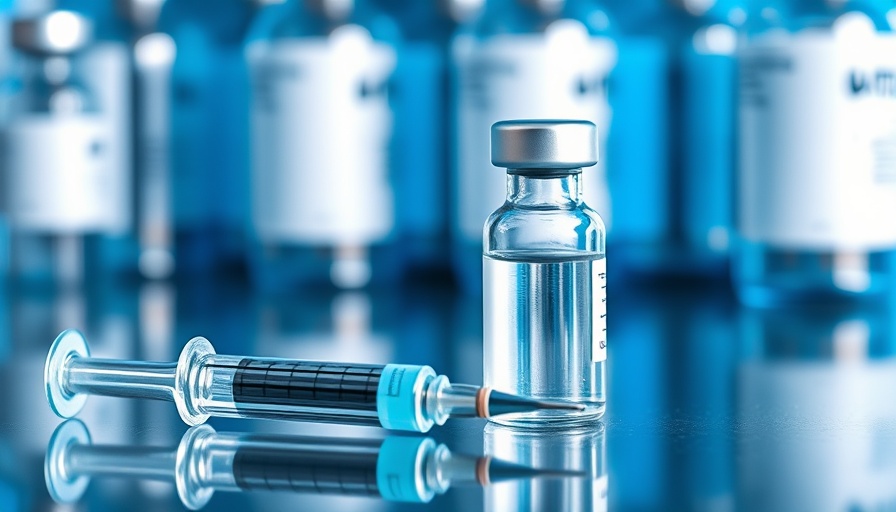
Breaking Down the Fake CDC Vaccine Page
In a significant move against misinformation, Health Secretary Robert F. Kennedy Jr. ordered the takedown of a fraudulent website designed to mimic the U.S. Centers for Disease Control and Prevention's (CDC) vaccine safety information page. The counterfeit site was linked to Children's Health Defense, an organization founded by Kennedy himself, which has been known for its controversial stance on vaccines. The site promoted misleading assertions about vaccines, notably the discredited claim that they are associated with autism, a notion supported more by sensationalism than by scientific evidence.
Understanding the Motivation Behind the Imitation
The exact reasons why Children's Health Defense would produce such a deceptive website remain uncertain, particularly given that Kennedy has stated he severed ties with the organization to focus on his presidential aspirations. The mimicry indicates a calculated effort to exploit the public's trust in official health sources. As Dr. Bruce Gellin, former vaccine director during the Bush and Obama administrations, pointed out, the page included both credible studies and discredited claims, thereby muddling public perception.
Public Health and Safety Concerns
This scenario raises critical questions about the impact of misinformation on public health. The CDC has historically been regarded as a gold standard for health information, and undermining its credibility can have serious repercussions, especially when compounded with the current climate of vaccine hesitancy. The integrity of information is paramount in fostering public trust in health recommendations.
Vaccine Safety and the Science Behind It
The misinformation about vaccines leading to autism has been thoroughly debunked by numerous studies, and yet it persists in the public consciousness. The resurgence of such claims, especially through platforms that appear official, can hinder the critical health initiatives necessary for community health and wellness. Efforts to combat misinformation are essential as we navigate public health crises and strive for optimal health outcomes.
Historical Context: The Origins of Vaccine Misinformation
The battle against vaccine misinformation is not new. The initial claims linking vaccines to autism emerged from a fraudulent study published in 1998, which has since been retracted. This historical context is crucial as it helps understand the long-standing struggle public health officials face in dispelling myths. Moreover, Kennedy's repeated assertions regarding vaccine-autism connections during public hearings illustrate how deep-rooted and politically charged these debates have become.
Reactions from the Public and Health Officials
The reaction to the takedown has varied widely. While public health advocates welcomed the decision as a necessary step towards diminishing misinformation, skeptics of vaccine efficacy remain adamantly opposed. The task of public health leaders is to bridge these divides, fostering dialogue that emphasizes evidence-based practices and dismantles unfounded fears surrounding vaccines.
Future Implications for Public Health
As Kennedy's administration seeks to restore trust in public health agencies, it must navigate the treacherous waters of vaccine misinformation. Investors in public health must implement proactive strategies in educating the community, illustrating the real benefits of vaccines through transparent communication and community engagement.
Conclusion: The Path Forward Against Misinformation
The takedown of the fake CDC vaccine site exemplifies the need for continuous vigilance against misinformation in health communication. Every health and wellness advocate can play a role, whether by participating in community health and wellness discussions, supporting accurate information dissemination, or participating in local health initiatives. In light of this incident, it’s crucial for community members to prioritize trust, transparency, and education to foster a more informed society.
As we navigate these challenges, consider checking for reliable sources about health and wellness products, medications, and general health advice. Engage with your local wellness community to stay informed!
 Add Row
Add Row  Add
Add 




 Add Row
Add Row  Add
Add 


Write A Comment